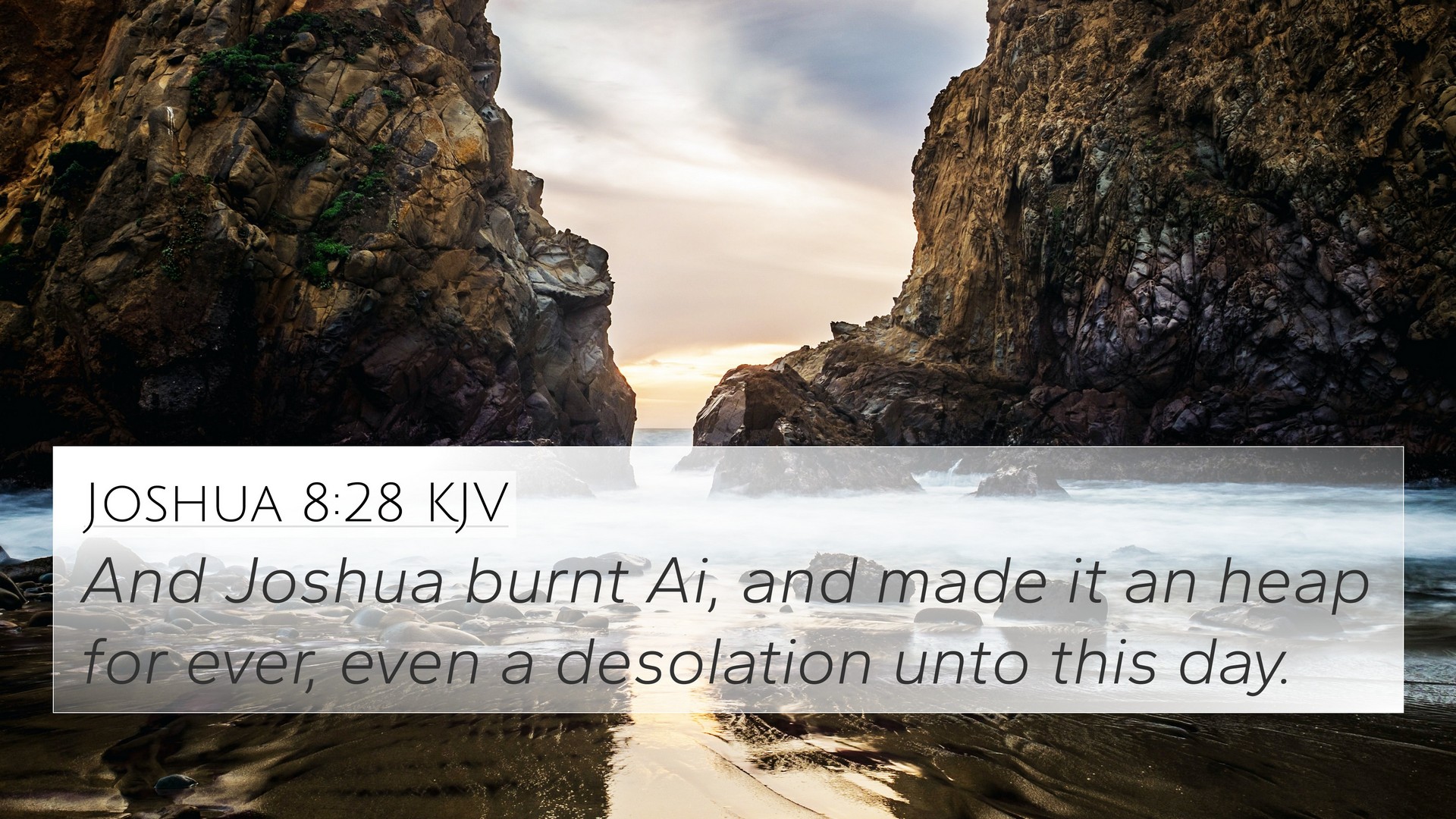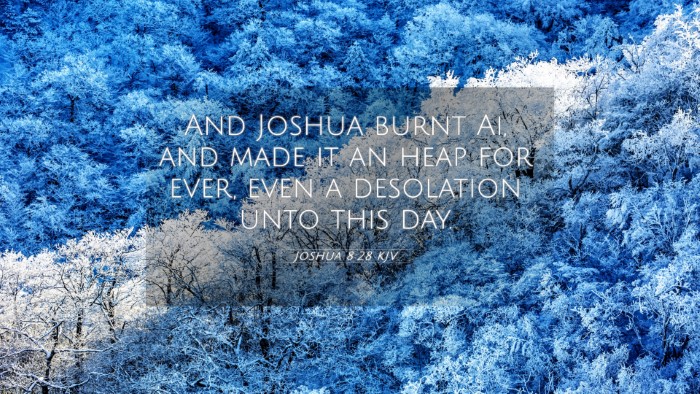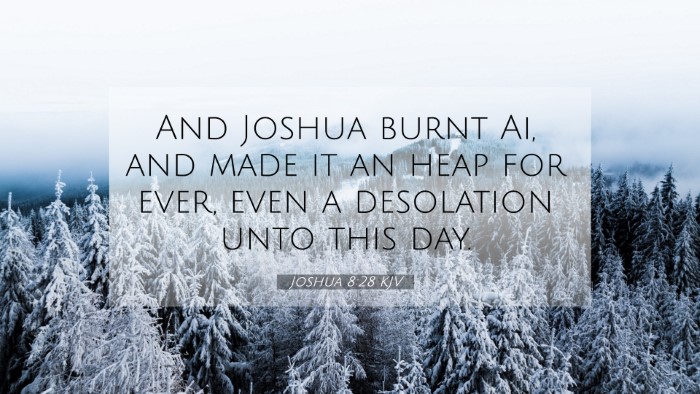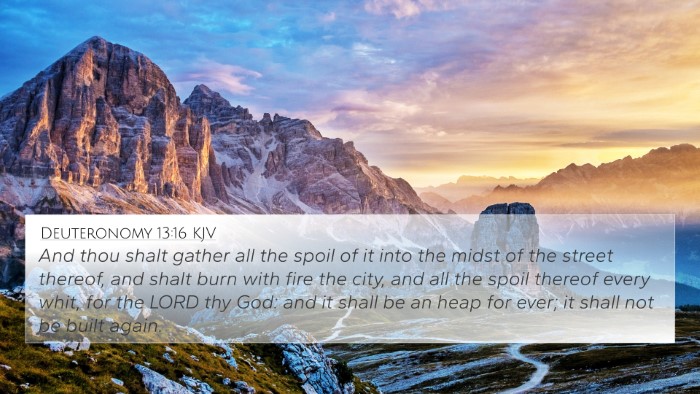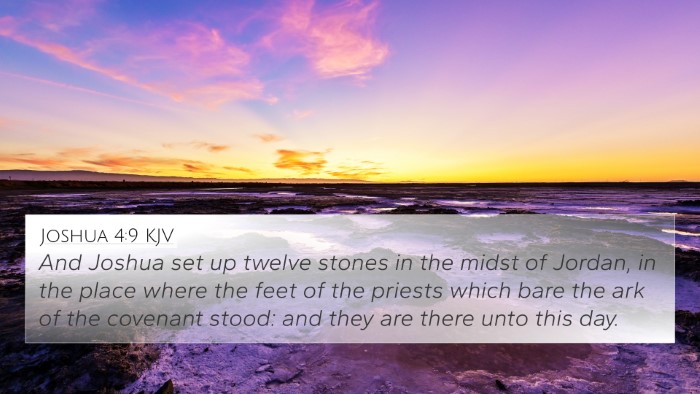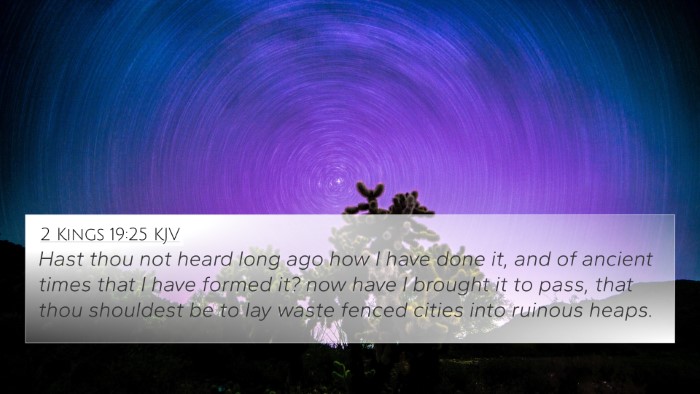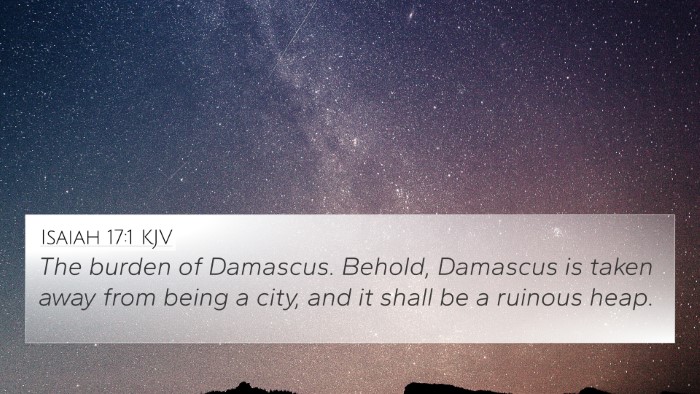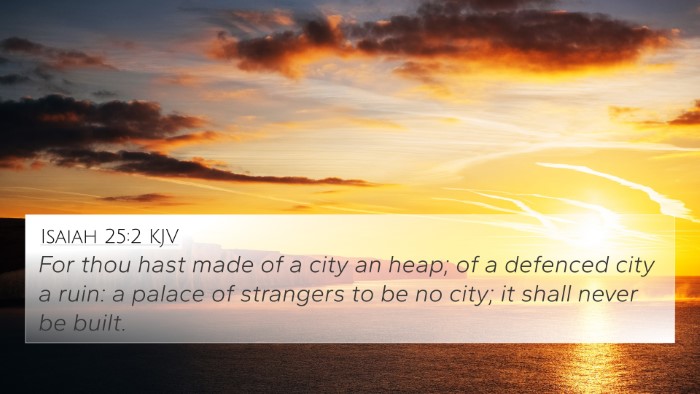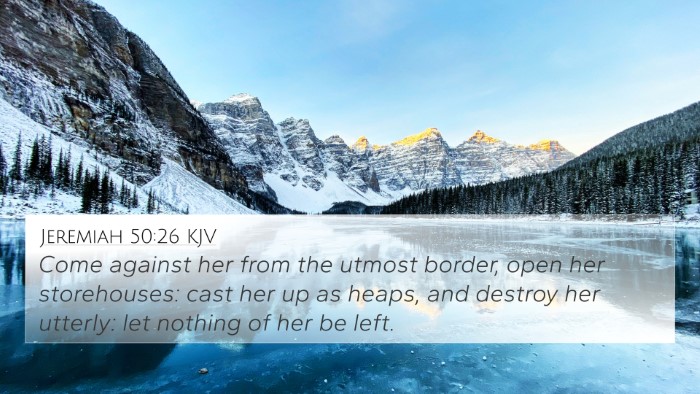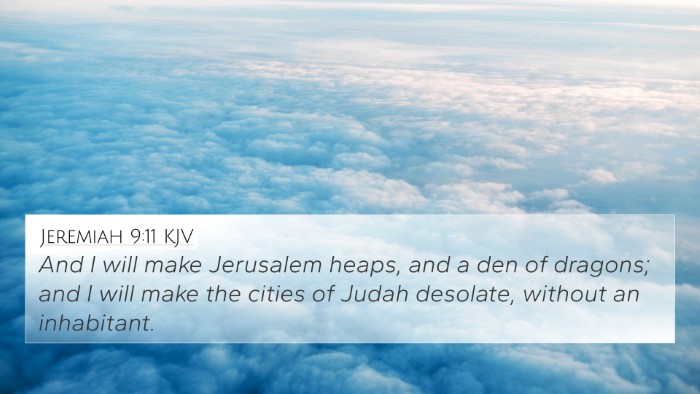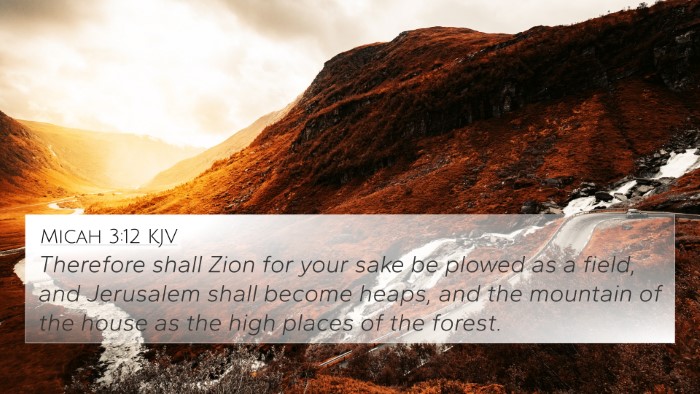Understanding Joshua 8:28
Joshua 8:28 states, "And Joshua burned Ai, and made it a heap forever, even a desolation unto this day." This verse describes a significant event in the conquest of Canaan, highlighting the fate of Ai after its defeat.
Overview of Joshua 8:28
This verse marks the culmination of Israel's victory over the city of Ai, showcasing God's faithfulness to His people and the consequences of disobedience. The destruction of Ai serves as a clear warning against sin and rebellion.
Commentary Insights
-
Matthew Henry's Commentary:
Henry emphasizes that the destruction of Ai signifies the just judgment of God upon a rebellious nation. The act of burning the city illustrates the totality of their defeat and serves as a monument to future generations about the seriousness of following God's commands.
-
Albert Barnes' Commentary:
Barnes points out that Ai was completely destroyed as a part of God's promise to the Israelites. He notes that this event serves to reinforce the importance of obedience and reliance on God for victory, symbolizing the spiritual warfare believers face.
-
Adam Clarke's Commentary:
Clarke discusses the implications of the term "heap" (or "tell"), which indicates not only the physical destruction but also the enduring lesson about God's righteousness. He relates this to the greater narrative of Israel's purification through judgment.
Thematic Connections
This verse connects with several themes within the Scriptures, particularly the themes of divine judgment, obedience, and the consequences of sin. It symbolizes a clear reminder to both Israel and believers today regarding God's holiness and justice.
Related Cross-References
- Deuteronomy 7:25-26: The destruction of idols and the command to not embrace the sinful practices of surrounding nations.
- Joshua 6:24: The destruction of Jericho contrasts with the fate of Ai, showcasing God's selective judgment.
- Genesis 19:24-25: The destruction of Sodom and Gomorrah as a parallel example of divine judgment.
- 1 Corinthians 10:11: Paul highlights the history of Israel as examples for Christians, reinforcing the call for righteousness.
- Hebrews 10:31: "It is a fearful thing to fall into the hands of the living God," echoing the seriousness of the judgment faced by those who disregard His commands.
- Revelation 21:8: This verse mirrors the fate of the immoral, drawing a connection between temporal and eternal judgment.
- Galatians 6:7: "For whatever one sows, that will he also reap," reinforcing the principle of divine justice evident in the destruction of Ai.
Inter-Biblical Dialogue
The events surrounding Ai's destruction find thematic parallels throughout Scripture, linking the Old Testament narratives with New Testament teachings about judgment and repentance. Each account reinforces the belief that God requires holiness and obedience from His people.
Further Study and Resources
For deeper understanding, utilizing Bible concordances and cross-reference guides can enhance your study of the connections between verses. Employing tools such as a Bible cross-reference system can facilitate an exploration of how Joshua 8:28 relates to other significant biblical themes and events.
Conclusion
Joshua 8:28 exemplifies the overarching narrative of God's judgment and mercy. Understanding this verse within its biblical context and through cross-references encourages believers to live in light of God's commands and moral expectations.
